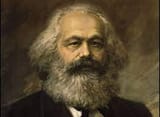Search Results
ID: UMh0gaI+/pol/510379155#510384263
7/14/2025, 9:40:32 PM
>>510379155
>How did Christianity end up like this?
Christian ideologies, like all ideologies, are shaped by the material conditions and dominant class relations of their historical context. The proliferation of Protestant denominations reflects the rise of capitalist modes of production, particularly in their liberal and market-driven forms. Under capitalism, where individualism, private choice, and consumer logic are elevated, religion becomes commodified and fragmented into countless sects that cater to the ideological preferences of atomized individuals. Rather than serving as a site of collective submission to a unified doctrine, modern Protestantism often functions as an ideological expression of capitalist individualism, allowing individuals to select a denomination that aligns with their existing worldview, rather than transforming that worldview in the service of collective spiritual or material emancipation.
>How did Christianity end up like this?
Christian ideologies, like all ideologies, are shaped by the material conditions and dominant class relations of their historical context. The proliferation of Protestant denominations reflects the rise of capitalist modes of production, particularly in their liberal and market-driven forms. Under capitalism, where individualism, private choice, and consumer logic are elevated, religion becomes commodified and fragmented into countless sects that cater to the ideological preferences of atomized individuals. Rather than serving as a site of collective submission to a unified doctrine, modern Protestantism often functions as an ideological expression of capitalist individualism, allowing individuals to select a denomination that aligns with their existing worldview, rather than transforming that worldview in the service of collective spiritual or material emancipation.
Page 1
